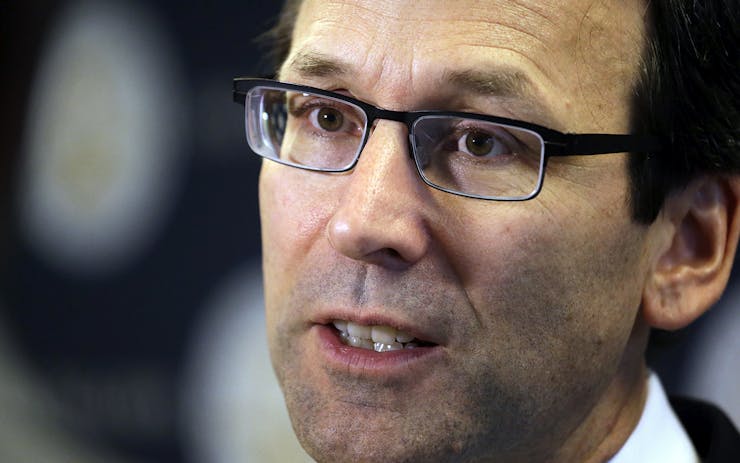Washington state officials sent up a flare over the state’s legal cannabis industry this week, asking operators to speak up about problems that have arisen in the wake of US Attorney General Jeff Sessions’ recent rescission of the Cole memo.
An alert sent Monday by the Washington State Liquor and Cannabis Board requests that businesses relay any Sessions-related troubles to the office of state Attorney General Bob Ferguson—a sign that Ferguson’s office could be gearing up to mount a challenge to the Justice Department.

(Courtesy of the Washington State Liquor and Cannabis Board)
“If you have experienced a change in your business practices or customer relationships that you believe is connected to the Sessions Memo,” the bulletin says, “we invite you to share your experiences.” It refers respondents to a dedicated email address at the AG’s office: marijuanaimpacts@atg.wa.gov.
The office could be looking for a posterchild for Jeff Sessions’ misplaced attack on legal cannabis.
It’s no surprise, of course, that the state’s top attorney has a stake in keeping tabs on cannabis at a time when federal raids or lawsuits could come without warning. But there are signs that the unassuming announcement could be more than just a status check. The notice is similar to what attorneys in private practice send out when they’re in search of sympathetic plaintiffs to bring a lawsuit.
In other words, the office could be looking for a posterchild for Jeff Sessions’ misplaced attack on legal cannabis.
It’s speculative, sure, but Ferguson would be a likely candidate to mount a charge against Sessions. His office hasn’t been shy about suing the Trump administration, having filed or signed onto nearly 20 suits since Trump took office.
On top of that, the notice was sent by Washington state cannabis regulators. Ferguson’s office has yet to issue a press release about the matter. That means the announcement is likely aimed not at winning media attention but at connecting directly with members of the cannabis industry.
If the state AG’s office could demonstrate that Sessions’ actions have harmed legal cannabis businesses, lawyers for the state could more easily challenge them in court. Even absent a lawsuit, industry experiences could be used to make a political case against Sessions. Showing that Sessions threw an otherwise well-regulated state system into chaos, for example, could be potent fodder at a time when congressional leaders are eyeing stronger cannabis protections at the federal level.
At an event in October, I asked Ferguson how his office would respond to signs of a coming crackdown by the Trump administration. “We would defend Washington’s interests,” he said at the time.
Ferguson was more guarded about the strategy he might use, saying only, “We think we have good legal arguments.”
Monday’s announcement may suggest that one such argument is in the making.





